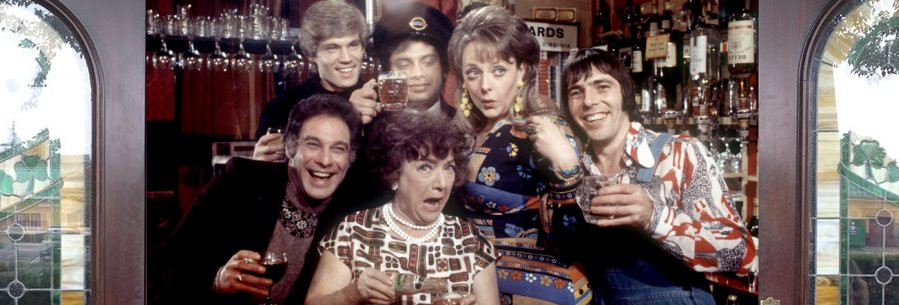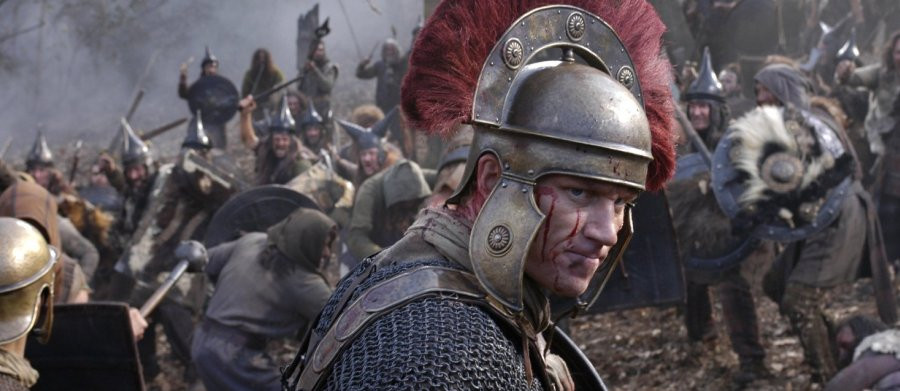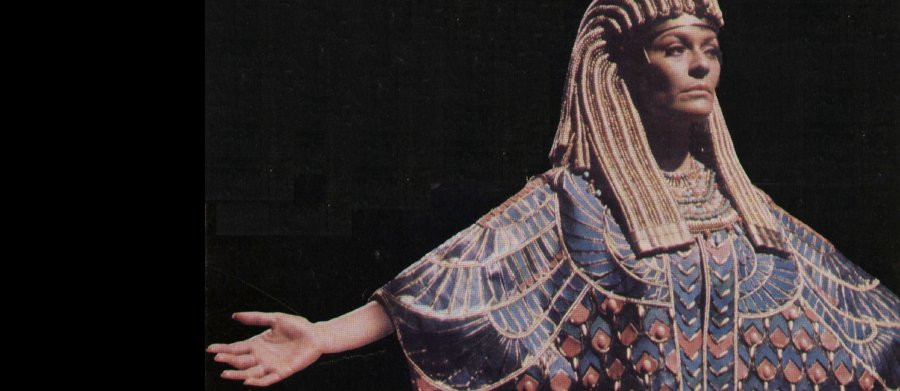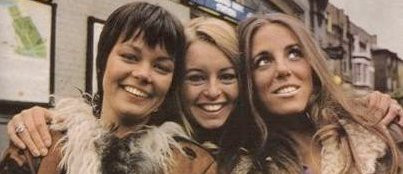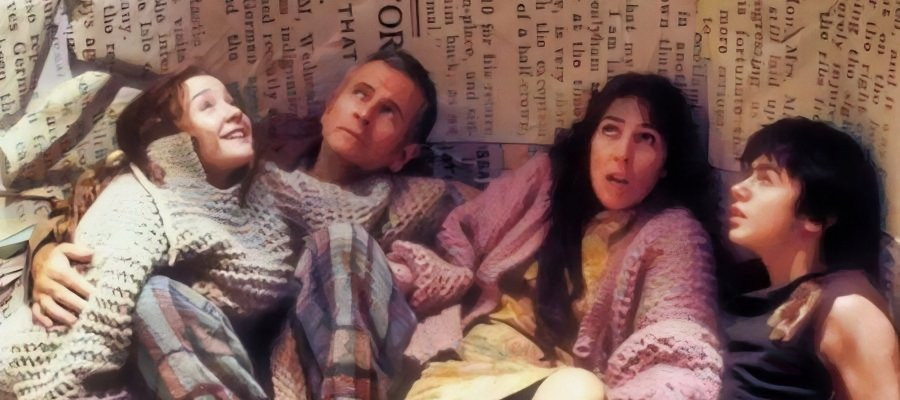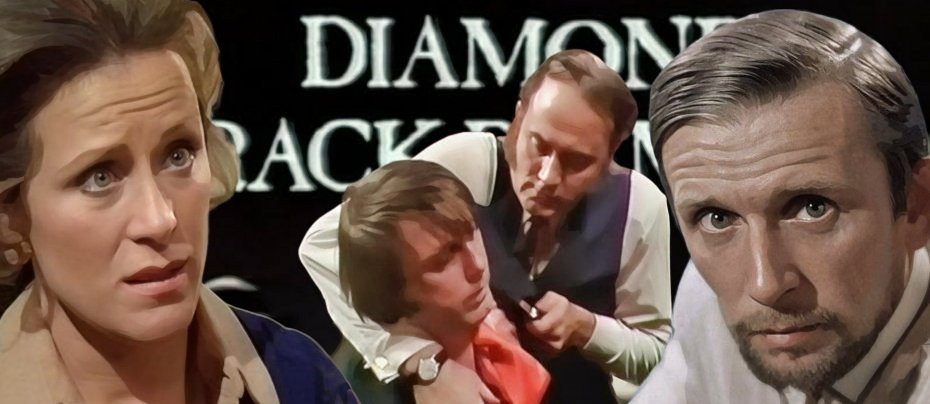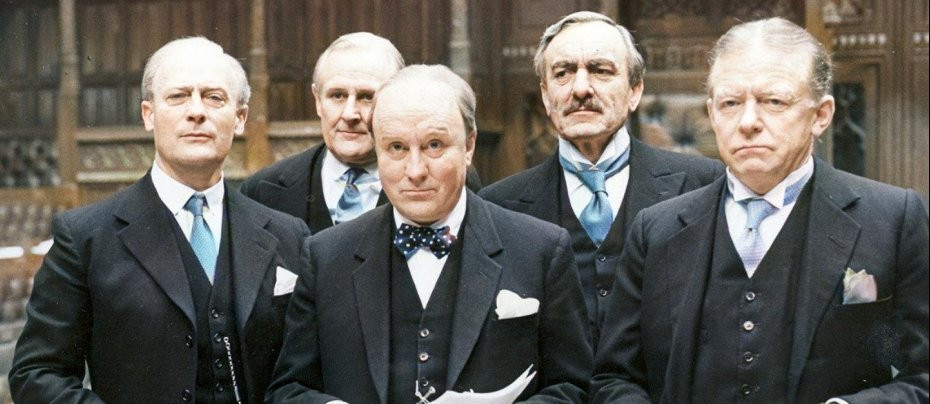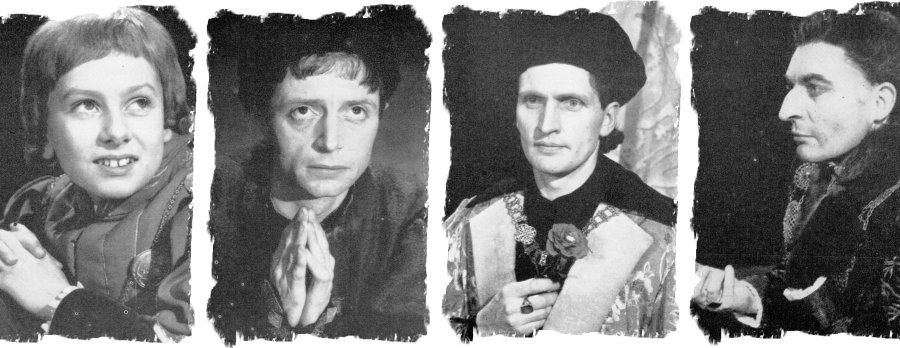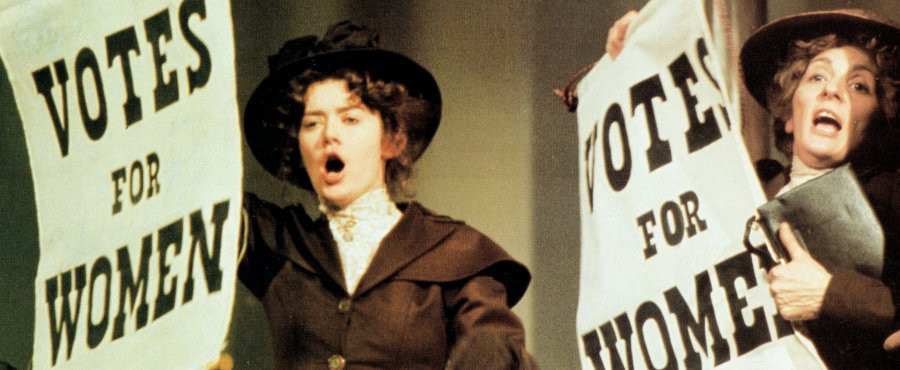
Shoulder to Shoulder
1974 - United KingdomWhen actress Georgia Brown complained to the BBC about the lack of meaningful roles for women in television drama their response was to tell her to go and find a series she would like to be in. Along with script editor Midge Mackenzie she discussed the possibility of doing a drama series based on the true story of the women's suffragette movement at the turn of the century. Reflecting the determination that would be illustrated by the women in the drama series, Brown then cornered high-profile producer Verity Lambert at an awards ceremony and together the trio of Brown, Mackenzie and Lambert were given the green light by BBC bosses and Shoulder to Shoulder, the first realistic and non-condescending drama series to portray the movement aimed at winning the right to vote for women in Britain, was born.
However, according to Brown, even some 60 years after the suffragette's were successful, there were still prejudices to overcome. Ideally, Brown and Mackenzie would have preferred the series to be written by women. But when they failed to secure anyone suitable, it was male writers they had to turn to. Each script was totally scrutinised and out went many popular held misconceptions, innuendos and untruths that Brown referred to as 'the male point of view'.
What was left was a powerful drama that depicted the intolerance and hardship that the women had to endure to make themselves heard above a prejudiced society. Harrowing scenes of brutality by the powers that be were starkly portrayed -such as Lady Constance Lytton being held down by prison warders as she is force fed by doctors shoving a tube down her throat to pump food into her. Women being beaten by the police, arrested en masse and publicly ridiculed led their originally peaceful protestations to take on new tactics as they took to smashing windows, defacing a nude Venus in the National Gallery and -in the case of Emily Wilding Davison, making the ultimate sacrifice by flinging herself in front of the King's horse at Epsom racetrack and dying from her injuries.
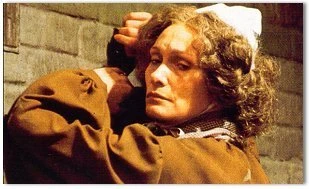
But the series also managed to cut a fine balance by also showing the private lives and the petty prejudices of the women involved, whilst acknowledging the brilliant speeches made and the unfailing courage that these women had. As Midge Mackenzie told 'TV Week,' "They were very gutsy ladies who were treated with enormous brutality and who have been blatantly ignored by historians. I find it hard to understand why I wasn't taught about this at school. The issues of the vote united women in a way that no issue had ever done before and is likely to again."
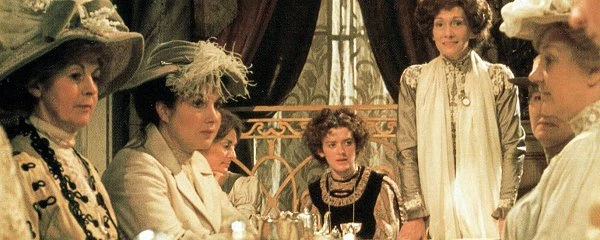
The key players in the true-life (and televisual) drama are:
Emmeline Pankhurst, who forms the Women's Social and Political Union, the driving power behind the women's movement. Portrayed by Sian Phillips she is shown as a sensitive, caring, charismatic woman who was also responsible for an increasing militancy in the campaign, prompted by an occasion in 1905 when her daughter:
Christabel (Patricia Quinn), was ejected from a Liberal meeting in Manchester and then arrested and imprisoned for assaulting the police because she had dared ask the meeting about votes for women. Christabel, a trained lawyer eventually had to help the fight from exile in Paris.
Sylvia Pankhurst (Angela Down), the middle daughter, who doesn't feel as though working women should have any part in their movement. She organises the women of London's East End as a way of leading them out of poverty.
Annie Kenney (Georgia Brown), a mill worker who joins the cause and eventually becomes a dynamic speaker for the movement.
Shoulder to Shoulder was shown on BBCTV in 1974, and also had an impressive supporting male cast including Michael Gough as Emmeline's husband, Dr Richard Pankhurst, Fulton MacKay as Keir Hardy, Robert Hardy as Asquith and an early role for Bob Hoskins as Jack Dunn. Sadly neglected by most television historians, books and websites, Shoulder to Shoulder was a stirring piece of British televisual drama that portrayed one of the most important movements in the history of civil rights, and is therefore more than deserving of its place in Television Heaven.
COMMENT
"As a devoted viewer of anything and everything produced by the BBC, it's my opinion that Shoulder to Shoulder ranks among the best of BBC. For many years, prior to owning a computer, I tried unsuccessfully to track down the TV series. No one, it seems, had heard of it! My local libraries and even my public televison channel, WQED, were of no help in locating the series. Over time the thought occurred to me that perhaps I had imagined the whole thing. Then paranoia began to grip me--perhaps, I thought, there is a plot to squelch this marvelous series for reasons that many of us modern day suffragettes would not find entirely incredible. Then, lo, Google came to my rescue and there it was, plain as the nose of my face!
I was fifty when I first saw Shoulder to Shoulder, but I have never ever forgotten it. I can still see every one of the marvelous actresses who had roles in it. Every one of them should have received highest awards. Especially Sian Phillips and Judy Parfitt.
Now that I am eighty, I am going to urge my local PBS channel to re-run it, if that is at all possible. I want my granddaughters to see this monumental production. I should like also for my daughter, herself now fifty, to see it, because she was only twenty and certainly was not "into" the Women's movement here in the United States.
I feel that, for me, a lost treasure has been found, and I think the time is ripe to revive a vital interest in the subject of women's rights. Although much has been accomplished by and for women over the years, I fear there has been much backtracking as well.
Thank you for your Web site."
Virginia Long Carlson
Pittsburgh, PA
Seen this show? How do you rate it?
Seen this show? How do you rate it?
Published on January 29th, 2019. Written by Laurence Marcus for Television Heaven.


